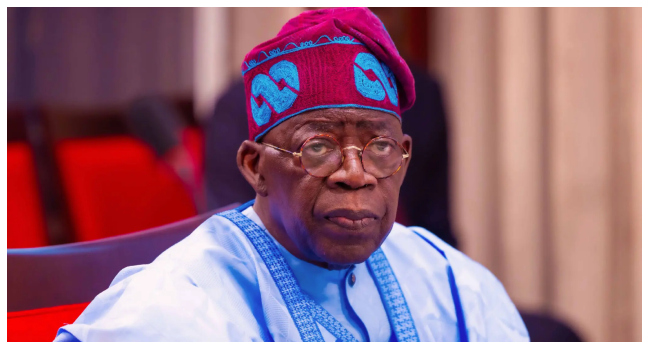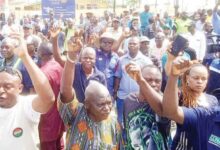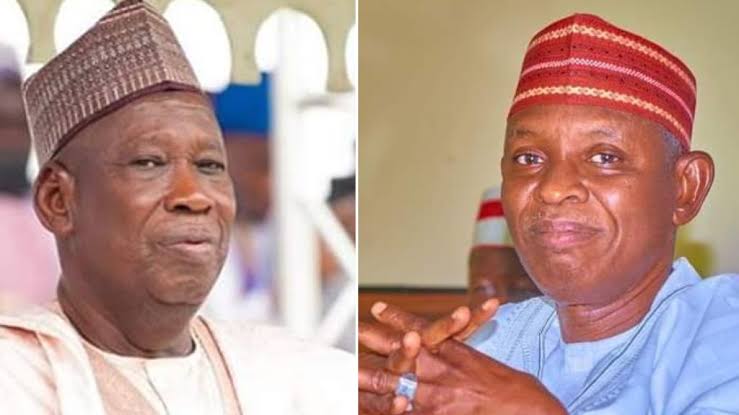MID-TERM REPORT: Nigeria’s social services, under Tinubu, remain underdeveloped despite increased budgetary allocations – CISLAC

By BASHIR ADEFAKA
The Civil Society Legislative Advocacy Centre (CISLAC) has presented its assessment of the Bola Tinubu’s administration in the last two years, saying, under the president life has gone below the least expected.
In a report signed by its Executive Director, Auwal Musa Rafsanjani, CISLAC, the Nigerian chapter of Transparency International, gave a comprehensive mid-term assessment which it said presents a complex picture of governance marked by reform ambitions intertwined with persistent challenges across Nigeria’s executive, legislative, and judicial branches.
In the report copy of which was sent to The DEFENDER on Thursday May 29, 2025, the Civil Society Organisation noted that the “report highlights an administration grappling with economic transformation and security management while facing increasing public dissatisfaction and democratic erosion.”
CISLAC was unimpressed that in Nigeria, under Tinubu, “Social services remain underdeveloped despite increased budgetary allocations.”
It expressed dismayed that also in the past two years the former Lagos State governor started happening to the country, “Public education quality is deteriorating, and healthcare services remain largely inaccessible to the poor.
“Infrastructure improvements are largely symbolic, often lauded in press briefings rather than felt in everyday life. The national power grid remains unreliable, and rural electrification lags far behind expectations.”
Read the full text of the CISLAC report below:
ASSESSING TWO YEARS OF PRESIDENT TINUBU’S ADMINISTRATION ACROSS NIGERIA’S EXECUTIVE, LEGISLATURE, AND JUDICIARY
As President Bola Ahmed Tinubu marks two years in office, a comprehensive mid-term assessment by the Civil Society Legislative Advocacy Centre (CISLAC), the Nigerian chapter of Transparency International, presents a complex picture of governance marked by reform ambitions intertwined with persistent challenges across Nigeria’s executive, legislative, and judicial branches. The report highlights an administration grappling with economic transformation and security management while facing increasing public dissatisfaction and democratic erosion.
Economically, the Tinubu administration has pursued bold reforms, including the removal of fuel subsidies and unification of exchange rates, which have won praise from international financial institutions. Nigeria’s foreign reserves have risen to over $37 billion, and foreign investment is tentatively returning. Yet for ordinary Nigerians, the harsh realities of these reforms have manifested in soaring inflation surpassing 33 percent, a doubling of food prices, and stagnant real wages. The absence of a comprehensive social safety net has exacerbated poverty and deepened the crisis of survival, exposing a dissonance between macroeconomic recovery indicators and everyday hardships experienced by the populace. This economic strain has contributed to widening inequality and heightened public discontent.
The government’s handling of civil liberties has drawn sharp criticism. The Tinubu administration’s response to increasing dissent has been heavy-handed, with crackdowns on protesters, including minors, and restrictions on peaceful assembly becoming commonplace. Despite constitutional protections for freedom of expression and assembly, the narrowing civic space signals a troubling drift toward authoritarianism. Security concerns are frequently cited as justification for repression, yet CISLAC warns this growing securitization of governance risks undermining fundamental democratic rights and weakening the nation’s social fabric.
Security remains one of the administration’s most daunting challenges. Despite expanded defense budgets and the creation of new security outfits like the Forest Security Service, violence persists across key regions, including Zamfara, Kaduna, Plateau, and parts of the South-East. Kidnappings, killings, and clashes have not abated, underscoring the limited impact of military deployments unsupported by effective intelligence reform. CISLAC advocates for a paradigm shift toward integrated security approaches emphasizing inter-agency collaboration, community policing, transparent procurement, and rebuilding public trust in law enforcement, which remain crucial for long-term peace and stability.
On anti-corruption efforts, the government has maintained some institutional mechanisms such as project tracking and procurement monitoring. The Independent Corrupt Practices Commission (ICPC) has monitored over 1,700 projects with some fund recoveries reported. However, the campaign is marred by selective enforcement, notably the failure to prosecute high-profile figures such as former Kogi Governor Yahaya Bello and the frequent defections of opposition politicians into the ruling party to avoid prosecution. This pattern has undermined the integrity of the anti-corruption drive and fed public cynicism about equal application of justice. CISLAC describes the campaign as weakened by double standards and stresses that impartiality is essential for meaningful progress.
The judiciary, as Nigeria’s third arm of government, faces persistent structural challenges despite commendable strides in filling judicial vacancies, digitalizing court processes, and ruling on electoral disputes. Backlogs, inconsistent verdicts, selective accountability, and executive interference have continued to erode public confidence in the justice system. The judiciary’s constitutional guarantees of financial and operational autonomy remain largely unrealized, with many state governments failing to domesticate critical laws such as the Administration of Criminal Justice Act. In a political climate characterized by increasing authoritarian tendencies and disregard for court orders, the judiciary’s independence is vital to safeguard civil liberties and uphold the rule of law. CISLAC warns that any further erosion of judicial impartiality risks accelerating impunity and democratic backsliding.
Agriculture, a vital sector for food security and employment, paints a similarly uneven picture. Despite the government’s declaration of a food emergency in 2023 and interventions like the “Earn from the Soil” initiative, over 31 million Nigerians remain food insecure, especially in conflict-affected zones. Budget allocations have not translated into commensurate agricultural output due to insecurity in farming regions, diversion of inputs, and inadequate access to credit and infrastructure. CISLAC emphasizes that without addressing land safety, rural development, and market access beyond seasonal handouts, sustainable food security will remain elusive.
The administration’s appointment pattern has also attracted criticism for lack of inclusivity and failure to uphold the federal character principle. Key positions have been filled with apparent regional bias, sidelining women and other marginalized groups. While competence is essential, appointments that disregard Nigeria’s ethnic, religious, gender, and generational diversity threaten national cohesion and unity, undermining the government’s broader stability agenda.
Employment and poverty continue to be critical concerns. Though the Student Loans Act signals some progress in educational financing, it falls short of addressing Nigeria’s structural unemployment and the escalating brain drain, popularly known as “Japa.” CISLAC contends that this exodus reflects economic despair rather than a lack of patriotism. The government must urgently focus on job creation, entrepreneurship, and industrialization to stem the loss of Nigerian talent and ensure sustainable development.
Social services remain underdeveloped despite increased budgetary allocations. Public education quality is deteriorating, and healthcare services remain largely inaccessible to the poor. Infrastructure improvements are largely symbolic, often lauded in press briefings rather than felt in everyday life. The national power grid remains unreliable, and rural electrification lags far behind expectations. CISLAC underscores that genuine progress must be measured by tangible improvements in citizens’ daily lives, not by superficial ceremonies or social media campaigns.
The 10th National Assembly, running concurrently with Tinubu’s administration, embodies both the promise and challenges of Nigeria’s democracy. The legislature plays a critical role not only as a lawmaking body but also as a forum for representation, checks and balances, policy scrutiny, and accountability. During this period, the Assembly has recorded some legislative activism, passing key bills, engaging constitutional amendments, and establishing committees to tackle national concerns. Notable efforts to enhance public participation and electoral reforms have been undertaken, along with oversight of security and economic challenges.
Yet, the Assembly’s record is marred by political dysfunction, including internal controversies, suspensions of members, allegations of executive interference, legislative gridlock, and defections that weaken democratic accountability. The failure to decisively address major national issues such as insecurity, corruption, and youth unemployment reveals a troubling disconnect between lawmakers and citizen expectations. The suspension of Senator Natasha Akpoti-Uduaghan, and the apparent weaponization of legislative privileges, have raised questions about the Assembly’s commitment to fairness and democratic norms. These actions risk undermining the constitutional guarantees of representation and free speech.
Moreover, the legislature has often shown insufficient independence from the executive branch. Oversight of critical policies has been tepid, responses to emergency declarations have been muted, and resistance to centralization of power remains weak. The House of Representatives, despite passing numerous bills, has sometimes failed to secure complementary Senate action, leading to legislative paralysis that stalls national progress. Issues such as land racketeering and informal taxation in Abuja’s Federal Capital Territory expose governance gaps that legislative committees have yet to fully address.
Political defections motivated more by personal survival than ideology further erode public trust and weaken party systems, deepening democratic fragility. Despite these setbacks, the 10th National Assembly still holds the potential to reassert its mandate through bold legislative action, robust oversight, and constitutional reform. This midterm review serves as a call for lawmakers to prioritize national interest above partisan or personal ambitions and to renew their commitment to the Constitution and the Nigerian people.
In this delicate democratic moment, the judiciary’s role is paramount. It must recommit to independence, impartiality, and the rule of law to serve as the final safeguard of democracy. Courts should be sanctuaries of justice, free from political manipulation, ensuring that citizens’ rights are protected, and that the government remains accountable.
CISLAC’s mid-term report concludes that while President Tinubu has initiated important reforms aimed at economic stability and governance, the administration’s overall performance is undermined by implementation gaps, rising authoritarianism, and insufficient empathy for citizens’ hardships. The Centre urges a shift toward people-centered policies, including increasing the minimum wage, comprehensive judicial and security sector reforms, equitable anti-corruption enforcement, and renewed investments in agriculture, infrastructure, and social services.
The next two years present a critical window for Nigeria to recalibrate its governance trajectory. Only through strengthened democratic institutions, transparency, and inclusion can the administration restore public trust and deliver on the promise of a prosperous and unified Nigeria. For civil society, media, and citizens, the challenge is to sustain engagement and pressure to ensure accountability and a government that truly serves its people.
Signed:
Comrade Auwal Musa Rafsanjani
Executive Director,
Civil Society Legislative Advocacy Centre (CISLAC)








